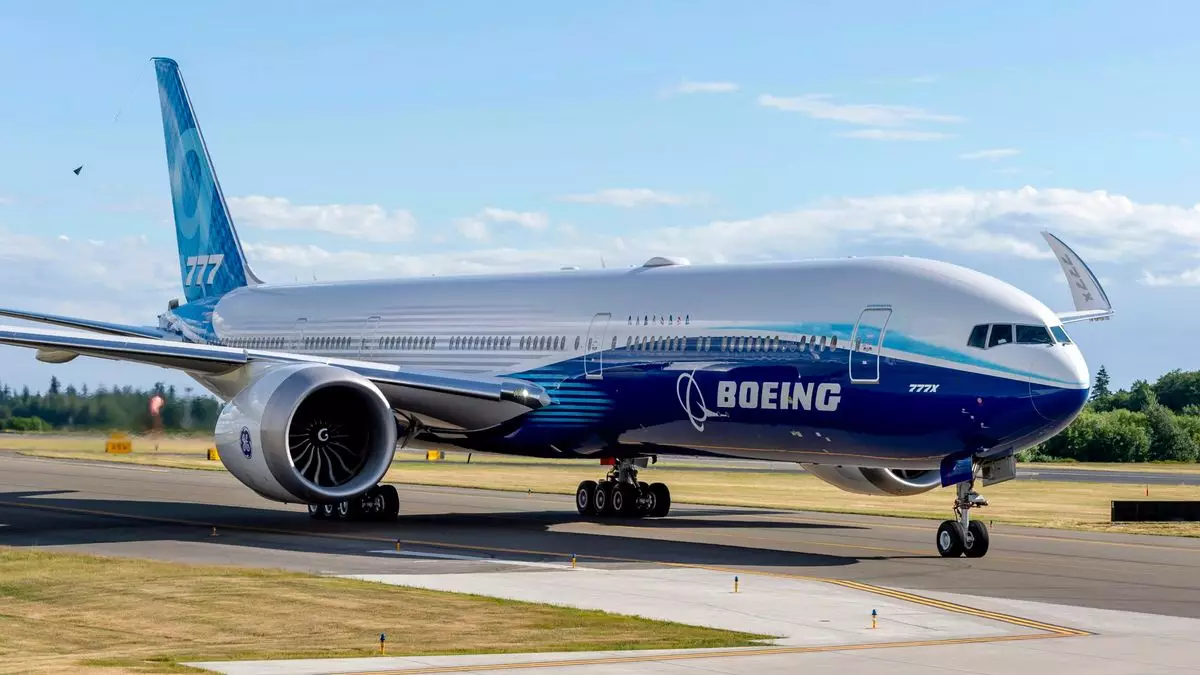The aerospace industry is currently under immense strain, with significant disruptions in production and labor relations posing serious challenges to major players like Boeing and its vital suppliers. Recently, Spirit AeroSystems—Boeing’s largest supplier of aircraft components—announced that it would be furloughing 700 workers due to the ongoing strike by Boeing machinists that has persisted since mid-September. As a critical supplier, Spirit’s decision to temporarily halt work on components for the Boeing 767 and 777 models highlights the intricate web of dependencies within the aerospace industry and raises the specter of broader ramifications if the strike continues beyond the month of October.
The strike, which involves approximately 33,000 workers in the Pacific Northwest, has already halted the production of pivotal aircraft including the Boeing 737 Max. With assembly lines stalled, Spirit AeroSystems is left with a backlog of parts that cannot be shipped, resulting in increased storage issues and financial strain on the supplier. The furloughs set to commence on October 28 are indicative of a tightening cash flow situation—an issue exacerbated by the ongoing consultations regarding Boeing’s compliance with Federal Aviation Administration (FAA) safety regulations. These regulatory reviews, which will occur over the next three months, reflect deeper concerns regarding Boeing’s overarching safety culture and its ability to meet engineering standards.
The FAA’s increased scrutiny towards Boeing is particularly telling of the regulatory climate in the aviation sector, especially following incidents that have raised alarms about aircraft safety. The FAA’s examination—detailing Boeing’s processes for generating reliable safety information—comes against a backdrop of criticisms regarding the aircraft manufacturer’s internal controls. There have been alarming indications that a lack of proper oversight may have allowed systemic issues to persist, which could ultimately affect public safety.
The Department of Transportation’s inspector general has pointed out that the FAA has not sufficiently addressed pressures felt by inspection staff and has failed to ensure the production of compliant parts. This report underscores the complexities and ethical challenges that accompany the high-stakes environment of aircraft manufacturing and inspection, wherein safety must not be compromised for profitability or operational efficiency.
As the situation evolves, Boeing has openly declared plans to lay off approximately 17,000 employees in response to the adverse financial impacts stemming from halted production. This announcement starkly outlines the dire consequences the aerospace giant may face if the strike fails to resolve promptly, potentially dragging its suppliers along with it into a cycle of layoffs and financial distress. The furloughs initiated by Spirit AeroSystems serve as an early warning of the cascading effects such disruptions can have across the industry.
Joe Buccino, a spokesperson for Spirit, noted that the decision to furlough employees is part of a broader strategy of cost reduction which encompasses travel restrictions and a freeze on hiring. The inability to deliver completed aircraft components due to the strike has created an untenable situation wherein storage capacities are being stretched, compelling Spirit AeroSystems to make challenging decisions that affect its workforce.
The ongoing labor dispute at Boeing serves as a reminder of the fragility of supply chains within the aerospace sector, an industry already challenged by market fluctuations, regulatory pressures, and safety concerns. As key players navigate this turbulent landscape, the focus will undoubtedly remain on resolving the strike, ensuring compliance with safety regulations, and restoring operational normalcy.
Ultimately, the interconnectedness of major corporations like Boeing and their suppliers brings forth the critical need for robust communication, transparency, and fair labor practices. As Spirit AeroSystems grapples with the current challenges, the potential long-term impacts on employee morale, industry reputation, and financial stability warrant careful consideration, lest they lead to repercussions that extend well beyond the immediate workforce adjustments. In this pivotal moment, the aviation sector must leverage lessons learned to enhance resilience and foster a culture of safety and cooperation for the future.


Leave a Reply